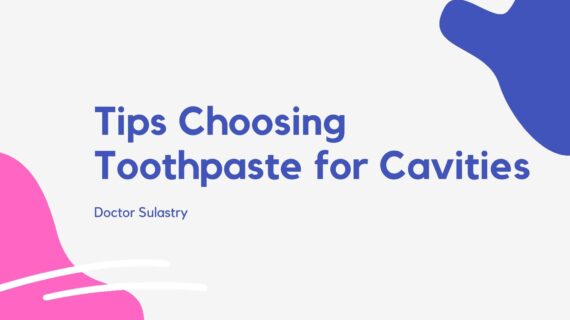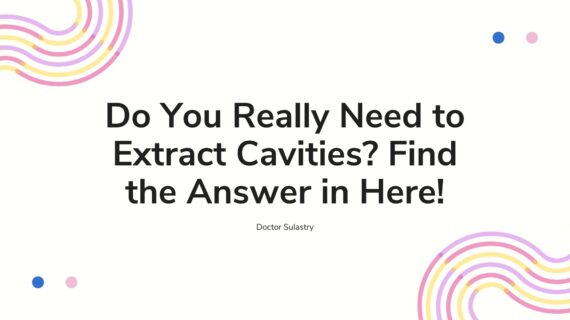Tips Choosing Toothpaste for Cavities – Toothpaste has become a daily necessity that you must buy when shopping at the supermarket. Every day at least you will use toothpaste at least twice to clean your teeth.
Actually, toothpaste has many flavors and is also sold in various specific functions. For example, toothpaste with the function of whitening teeth, cleaning and protecting teeth from bacteria, making the mouth feel fresh all day, preventing cavities, and much more.
Also Read Teeth Whitening Facts and Benefits That Should You Know
Common ingredients in toothpaste
Some of the ingredients in toothpaste are:
1. Abrasive agent
It is a crude material, such as calcium carbonate, dicalcium phosphate dihydrate, and magnesium trisilicate. Abrasive agents work to help expel food debris, bacteria, and some stains on the teeth.
2. Artificial sweeteners
including saccharin, are often added to toothpaste to make them taste better. Toothpaste flavors are usually a mixture of several components.
3. Dye
Also added to toothpaste, such as titanium dioxide for white pastes and various food colorings for colored pastes or gels.
4. Humectants
Used in toothpaste to prevent water loss in toothpaste so that the toothpaste does not harden when exposed to air when opened.
5. Binder
The binder is a hydrophilic colloid that binds water and is used to stabilize toothpaste formulations by preventing the separation of the solid and liquid phases.
6. Detergent
Detergents, such as sodium lauryl sulfate, produce foam when you brush your teeth.
7. Fluoride
Fluoride is very important for dental health because the use of fluoride in toothpaste can reduce the risk of dental caries.
Several tips choosing toothpaste for cavities
One of the simplest ways to treat cavities is to brush with the right toothpaste. Unfortunately, there are many toothpaste products on the market with various brands, colors, and flavors.
You are currently confused about which toothpaste is best for cavities. Here are some tips choosing toothpaste for cavities that you can try.
1. Choose a toothpaste that contains fluoride
Toothpaste contains many active ingredients to help maintain oral health. Well, one of the most important ingredients to look for when choosing a toothpaste for cavities is fluoride.
Various studies have found that fluoride is effective in preventing caries and plaque buildup on teeth. This is because fluoride helps protect and strengthen tooth enamel. In addition, fluoride can also help the process of remineralizing teeth that have begun to decay. That way, the decay will not get worse and the formation of cavities in the teeth can be avoided. You should not hesitate to use toothpaste that contains fluoride.
2. Avoid toothpaste that contains irritants
When you are choosing toothpaste, try checking one by one the list of active ingredients listed on the package.
You should know that some of the active ingredients in toothpaste have been labeled as allergens or irritants. Some of them are as below.
- Citric acid (often listed as zinc or potassium citrate)
- Triclosan
- Sodium lauryl sulfate
- Propylene glycol
- PEG-8, PEG-12, PEG-1450
- Cocamidopropyl betaine
- Parabens
- Pyrophosphate
The most typical sign that you have a toothpaste allergy is sores or canker sores in your mouth. The location can vary in the cheeks, tongue, gums, lips, to the roof of the mouth. Lips also become red, itchy, and painful.
You should always check carefully the ingredients contained in the toothpaste product that you are going to buy. Make sure the toothpaste product you choose does not contain harmful ingredients or that can trigger an allergic reaction.
3. Choose a well-known product
If you want to use toothpaste for cavities, choose a product that has a seal from a reputable organization. For example, the American Dental Association (ADA) or the Indonesian Dental Association (PDGI).
This seal indicates that the toothpaste you are using is safe and effective at protecting your teeth as well as removing stains from your teeth.
You should also consult a dentist before using toothpaste products for cavities. If needed, the doctor can prescribe a special toothpaste that is not usually sold commercially in the market.

